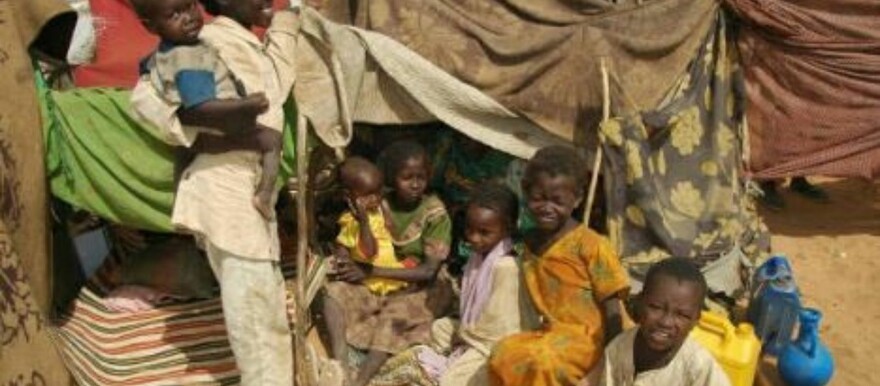Abu Shouk displacement camp in Sudan’s North Darfur State is facing complex humanitarian conditions and significant security challenges due to its location on the frontlines between the Sudan Armed Forces (SAF) and the Rapid Support Forces (RSF) to the north of Al-Fashir city.
This has caused substantial harm among the displaced, including deaths and injuries resulting from repeated clashes and the lack of basic food and health services for civilians.
Mohamed Ishaq Abdullah, a general health practitioner in Abu Shouk camp, told Radio Tamazuj Tuesday that the conditions in the camp are dire and that there are few medical personnel and no medicine.
“There are complex humanitarian conditions that require the intervention of the federal and state governments and humanitarian organizations, especially in terms of health,” he explained. “Due to the camp’s location in conflict zones, there is insufficient medications, especially for children, environmental deterioration, shortage of medical staff, and the absence of ambulances for transporting the wounded and injured.”
Another resident of the affected area, Adam Abbakar Mohammed, complained about soaring commodity prices, the absence of basic services, especially water, and the lack of job opportunities for the displaced people.
He said the IDPs used to receive humanitarian aid from humanitarian organizations and UN agencies but that these have dwindled due to insecurity caused by daily clashes.
For his part, Ahmed Mohammed Adam, the head of the northern sector’s shelter centers, which include Abu Shouk, Abuja, and Abu Shouk Al Hila, said the numbers of IDPs keep growing and that the people in the camps are finding it difficult to accommodate new arrivals.
“There are 25 shelter centers, in addition to newcomers from other states, as well as incidents west of Al-Fashir in Sarafaya and Birka villages,” he said. “Newly displaced persons have been hosted by the old residents despite the difficult conditions.”
He pointed out that the camp last received humanitarian aid in February and that everyone is suffering from extremely difficult conditions, especially a lack of health services, poor environmental conditions, and a lack of drinking water.
Adam appealed to all international, regional, and national organizations to urgently intervene.
Meanwhile, Mayor Adam Abdullah Mohammed Sharaf, the head of the civil administration in the camp, told this publication that 307 artillery shells have hit the camp since the beginning of the war.
“The camp has recorded 56 deaths and 114 injuries due to artillery shelling and bombardment. The shelling by the RSF directly targets the camp. I urge the warring parties, especially the RSF, to stay away from civilian areas,” he appealed. “The current situation is extremely dire and famine is imminent, so I appeal to both sides to heed the voice of reason in search of peace.”
He called on the United Nations to expeditiously intervene to provide protection for the displaced, open roads for humanitarian aid and trade convoys, and pressurize humanitarian organizations to step in to save the situation.
Relatedly, Omar Abdullah Al-Zein, a teacher who doubles as the executive director of the Abu Shouk camp, said that a meeting was held involving civil administrators, committee heads, and local leaders to coordinate efforts to address the camp’s problems.
Abdullah promised to collaborate with relevant authorities to find swift solutions to the camp’s health and security problems, especially water, by maintaining water sources and improving environmental health.
He also appealed to humanitarian organizations to urgently intervene to save the people in the camp.




